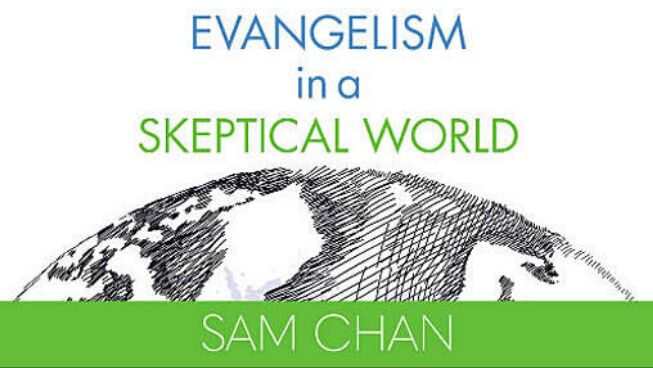How to contextualise the Gospel
Reaching a Post-God Nation
How to Contextualise the Gospel
How to speak the Good News of Jesus to a post-reached, post-Christian, post-modern, post-Western World!
Introduction
Jane versus Jack
Are we allowed to contextualise?
Definition of contextualisation
Speaking the Gospel to a culture in a way that is meaningful to that Culture
1. What is the aim of contextualisation?
The aim of contextualisation is:
- to communicate the message of the Gospel
- in a way faithful to God’s revelation
- that is meaningful to the hearers in their own cultural and existential contexts.
2. Can you put it another way?
Demonstrate the relevancy of a Gospel to a culture – not make the Gospel relevant
(Mark Driscoll’s talk)
“Contextualisation is not giving them the answers that they want to hear, but giving them God’s answers – which they may not want to hear – to the questions that they are really asking” (Tim Keller)
“enter and challenge” (Tim Keller)
Enter
- don’t use non-essentials of the Gospel that will unnecessarily offend or confuse
- don’t make them do things they don’t have to do
don’t make them give up things they don’t have to give up
Challenge
- don’t remove essentials of the Gospel that will necessarily offend
- make them do what they have to do
make them give up what they have to give up
Notice the tension:
Under-Adapt ← Enter and Challenge → Over-Adapt
3. But why can’t I just give them the Gospel?
4. There is no universal, de-contextualised form of the Gospel (Keller)
The instant you present the Gospel, you have chosen to be:
- contextual
- historical
- particular
5. Every form of Gospel presentation will over- and under-adapt (Keller)
We are blinded by our culture.
So we cannot see our cultural blindspots.
As a result every Gospel presentation will have some form of over- and under-adaptation
Conclusion
To think that all we have to do is:
“give them the Bible” is too simplistic (at best) and naïve (at worst)
For we ourselves to understand and apply the Bible,
we need to be experts in cultural hermeneutics.
What does God think of Culture?
A Theology of Culture
1. There is a Divine Aspect in Culture
a) The Incarnation
At the incarnation, the Word became Flesh
the Word
became Flesh
but note!
Don Carson says:
“No truth which human beings may articulate can ever be articulated in a culture-transcending way. But that does not mean that the truth thus articulated does not transcend culture.”
Significance
b) General Revelation
There is some knowledge of God that is universally available.
That is, God communicates universally with/through his creation.
Could it be that we, human beings, communicate back (both explicitly and implicitly)?
Thus, in all cultures, can be found some of this God-human dialogue.
Significance
c) Common Grace
The Reformers identified a category called “common grace” – God’s goodness to all peoples, etc.
This is God’s undeserved care of all creation/people – apart from his “special grace”.
For example,
- maintains the universe, and life (Acts 17:28b)
- sends rain, makes crops grow (Matt 5:45; Acts 14:17)
- feeds animals and people (Ps 104)
- restrains sin (Gen 20:6 – God restrains Abimelech from sinning against him)
- delays judgement (Exod 34:6 – “slow to anger”; 2 Peter 3:9)
- human learning, creativity (arts, sciences, philosophy, etc.) (Exod 31:2-11; 35:30-35)
- social and political order (Rom 13)
→ God provides/maintains good things in his creation
Richard Mouw’s thesis is that God’s is not only glorified in salvation, but also creation/beauty.
Significance
This is why, there is:
- beauty in the arts
- wisdom in the sciences
- truth in other religions
- morality, “conscience” in humans
In this sense: “All goodness is God’s goodness!” (Vanhoozer).
or, we could say, “All beauty is God’s beauty!”
Analysis
2. There is a (Legitimate) Human Cry in Culture
a) Image of God (imago Dei)
We are created in the image of God.
One way that this works out is we share God’s creativity:
- create worlds of meaning
- create texts of meaning
→ i.e., create culture
Just as Adam “cultivated” the Garden (Gen 2),
so we also “cultivate” our Culture.
Just as “fill the earth and subdue it” (Gen 1) → creation mandate
so we also shape our world and make it meaningful → cultural mandate
b) “Eternity”
God has also placed “eternity” in the hearts of men:
“I have seen the burden God has laid on men. He has made everything beautiful in its time. He has also set eternity in the hearts of men; yet they cannot fathom what God has done.” (Eccles 3:10-11)
To be human is to carry this burden from God:
- a longing for eternity (a God consciousness?)
- a longing for wisdom and understanding
- in the midst of God’s beauty
Thus, every human has an “existential cry” for:
- transcendence (God, religiousness)
- meaning
- eternity
And culture reflects this worldview in its texts.
Analysis
3. There is sin in every culture
All humans are sinful
- sinful from birth
- all have sinned
- every aspect of us is affected by sin
As a result, in every culture, there will be some way of expressing:
- rebellion
- idolatry
- wandering
- suppressing the truth
- brokenness
- the curses of Gen 3
Comment
As Tim Keller puts it:
“Because of common grace, no (non-Christian) culture is as bad as it should be;
Because of depravity, no (Christian) culture is as good as it should be.”
Or as I put it:
“Every culture will find its way of crying out to God;
and every culture will find its way of running away from God.”
4. There will be a redemptive analogy in every culture
Creation groans for its redemption (Rom 8)
Image of God should long for its redemption
Cry for “eternity”
→ Conceptual links between creation and redemption
Analysis
God has prepared every culture for the Gospel
Summary and Conclusion
Incarnation → the Good News can enter any culture
General Revelation, Common Grace, Image of God
→ there will be truth in any culture
“Eternity” → every culture will be crying out for God
Redemptive Analogy → every culture will have an analogy that the Gospel can connect to
Human Depravity → every culture will have a sin that the Gospel will need to challenge
All cultures by themselves are not totally good or evil
- there will be something that the Gospel will find in common.
- there will be something that the Gospel will need to challenge







